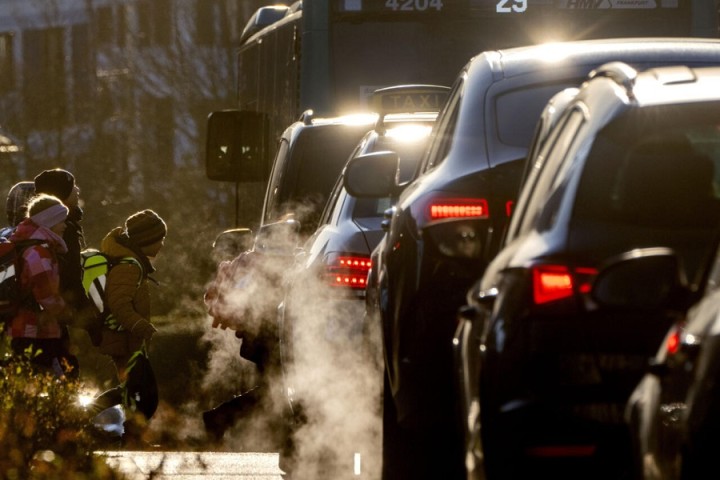Combustion engine ban least popular climate policy in Germany, France, Poland, survey shows

In 2023, EU countries and the European Parliament adopted a de facto ban on the sale of new petrol and diesel cars as of 2035, by reducing allowed tailpipe emissions to zero, with an exception only for cars running exclusively on climate-neutral fuels, whose implementation is still outstanding.
This policy, widely known as “combustion engine ban”, is the least popular climate policy measure from a list of 40 options offered in a survey by researchers from Oxford University, Humboldt University Berlin, and Hertie School Berlin, published on Friday (8 March).
The survey allowed 15,000 respondents in Germany, France, and Poland to assess multiple climate policies, as well as the status quo, in a pairwise comparison, to create a popularity ranking among potential measures.
In all three countries, the ban on cars with internal combustion engines ranked at the bottom, followed by measures such as increased CO2 levies (Germany, Poland) as well as road tolls for all cars except electric ones (France).
While dissatisfaction with the ban on internal combustion engines is the highest among voters of the far-right, it spreads across political camps, making it the least popular option also among potential voters of centre-left parties such as Germany’s SPD, Poland’s Lewica, and France’s Parti Socialiste (all S&D).
Unlike centre-right and far-right parties, the centre-left S&D group in the European Parliament has always supported the measure, arguing that it was necessary to reach EU-wide climate neutrality by 2050 and provide the necessary clarity to car manufacturers to focus on electric cars.
While the centre-right EPP has deleted a promise to revert the ban “as soon as possible” from its final manifesto for the EU elections in June, adopted at a party convention last week, Jens Gieseke, the EPP’s chief negotiator on the CO2 rules for cars, told Euractiv that “the end of the combustion engine will be reviewed in any case”.
Measures popular which don’t affect consumers
On the other side of the spectrum, measures ranked the most popular include higher government investments in public transport (Germany), a transition to environmentally friendly heating in public buildings (France, Poland) and other measures putting the onus on public authorises and large corporations, rather than consumers.
“We continue to see a broad spectrum of measures that people find better than doing nothing in terms of climate policy,” Nils Redeker of the Hertie School Berlin explained when presenting first results of the study on Wednesday (6 March). This spectrum, he said, “is very dominated by green investment and industrial policy measures”.
“There are also a number of regulatory interventions that are popular, for example things like green standards for energy production, green standards for industry, but also very targeted interventions such as a ban on short-haul flights or private jets,” added Redeker, who co-authored the report.
Regulation would be popular “especially when it doesn’t directly affect people in their everyday lives,” he concluded.
No general ‘green backlash’
Nevertheless, the authors rejected the impression of a broad “backlash” against climate policy measures, arguing that “even after five years of a heavy European policy focus on climate regulation, and despite high inflation, a tough economic context and pressing security issues, most voters would still support a more ambitious climate policy”.
“A European election campaign in which parties try to outbid each other over who scales down their climate ambitions the most would simply misdiagnose where voters stand on the issue,” they warned.
Instead, the authors voiced hope for a larger focus on public investments, such as through an EU-wide fund for industrial policy, which could focus on green investments but also aim at reducing economic dependencies from third countries and protect the competitiveness of European industries.
“Here it will be important to answer the question of financing,” said Jannik Jansen, another co-author of the report.
For largely unpopular measures such as higher carbon prices on petrol and diesel, the authors argued that a redistribution of revenues, particularly to those households with the lowest income, could reduce public dissent.
“Here we see a consensus across the three countries and also across party lines that this revenue should be redistributed mildly progressively,” Jansen said, adding that “this means that low-income or middle-income households should receive a higher percentage share”.
A per-capita redistribution known as Klimageld (climate bonus), whereby every citizen would receive a fixed lump-sum payment, championed by Germany’s Greens and liberal FDP, would however be “surprisingly” unpopular, Jansen added.
Source : euractiv.com

